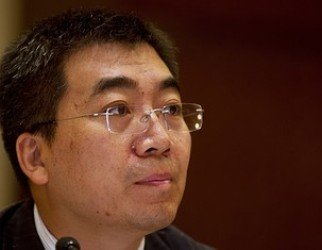Telecom Lead India: Huawei India CEO Cai Liqun has shared strategies to address market conditions in India.

Huawei, according to Liqun, will not even tweak its strategies for India to address challenging market conditions. “We have a long-term strategy. We will provide end-to-end solutions to customers. We will continue to focus on all three businesses: mobile networks, mobile phones and enterprises.”
All these businesses are growing. “But enterprises and terminals will have significant growth this year. It does not mean that we are focusing less on infrastructure business. We hope to sign several LTE and 3G deals soon,” Liqun added.
Recently, Huawei said it will revise revenue target as Indian telecom operators’ Capex has declined in 2012.
Huawei India CEO says the telecom equipment supplier will not slash salary of its employees or curb employee numbers in the country.
ZTE, one of the competitors of Huawei, recently said it will cut salary of Indian employees by 25 percent to control costs.
“We have already re-deployed our Indian resources for our global projects. We will not cut salary of employees or reduce their number in line with market conditions. Our employees are backbone of our success in the country,” Liqun told TelecomLead.com.
ZTE has near 1,600 employees in India, of which about 1,200 are direct staff. “Despite the tough times, we are retaining and trying our best to optimize all our resources in line with the laws of the land. Liangjun claimed the company’s India sales is growing and would exceed last year’s $610 million. A sizeable chunk of the growth is likely to come from its enterprise business,” ZTE India CEO Cui Liangjun told Economic Times.
In fact, both ZTE and Huawei are facing market pressure. Due to the 2G scam and Supreme Court cancelling 122 mobile licenses, operators like Etisalat, S Tel, Batelco have already exited the market. After the spectrum auction in November, Telenor is expected to leave the Indian market. Huawei and ZTE are amongst the vendors who won managed services deals with many of the operators that have had their licenses cancelled.
According to ABI Research, as the Indian market is expected to experiment consolidation in the next few years some vendors – Ericsson, Nokia Siemens, Alcatel-Lucent, Huawei, and ZTE – are likely to get squeezed out in the process.
“Within the next two to three years we are likely to only have room for three managed services vendors in India, as consolidation takes place. Beyond Ericsson, NSN, and possibly a third vendor we don’t really see a scenario for anyone having a profitable managed services business,” said Aditya Kaul, practice director, mobile networks at ABI Research.
If Indian operators are not going spend on TD-LTE deployment until at least 2014 due to a variety of political factors, it will further affect all telecom equipment vendors.
Huawei is betting big on broadband. The government received approvals from 10 state governments and 1 union territory for right of way for setting up the Rs 20,000 crore National Optical Fiber Network scheme. The delay in getting approval will pose more challenges.
Huawei, which has secured over 100 commercial LTE/EPC contracts and has launched 45 commercial LTE networks with operators worldwide, is in talks with Reliance Industries-owned Infotel Broadband for bagging LTE roll out deals.
The year 2013 will be exciting for Huawei. 2G, 3G and 4G will drive the Indian market.
